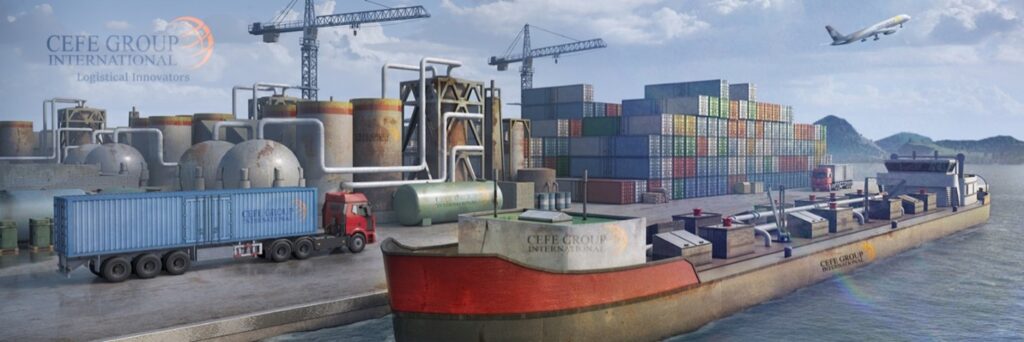CEFE Group International is a leading global energy trader and supplier, offering a range of high-quality energy products including crude oil, natural gas, and refined products. With its headquarters located in Dubai, UAE, the company has a strong presence across the globe, including in Europe, North America, Africa, and Asia. CEFE Group International is known for providing exceptional energy solutions such as supply solutions, logistics, and risk management. To learn more about the company and its offerings, visit their website at https://cefegroup.com/energy.
The European Union (EU) has been increasing its imports of non-Russian diesel, receiving around 146,000 t/d in the week leading up to 29 January, which is significantly higher than the full-year average of 88,000 t/d in 2022. Vortexa data has revealed that Saudi Arabia has been a major contributor to this increase, providing approximately 44,000 t/d of non-Russian diesel last week. The UAE and the US have also increased their supplies, providing around 20,000 t/d and 19,000 t/d, respectively. Meanwhile, Kuwait has contributed around 15,000 t/d, which is nine times more than the supply in 2022.
The EU has also continued to import diesel from Russia, with an intake of 88,000 t/d last week, compared to 80,000 t/d in 2022. Despite the surge in non-Russian imports, European traders believe that it may be difficult to sustain this level over a prolonged period. However, most traders are not worried about securing replacements for Russian diesel next month, when the EU ban on Russian diesel comes into effect. Storage tanks are reportedly relatively full, and demand from buyers has been depressed since November.
Although non-Russian diesel has commanded wider premiums over Asian products in January, front-month Ice gasoil futures are now around $60/t above front-month Singapore gasoil swaps on average, up from $45/t in December. However, non-Russian diesel has lost value against US Gulf coast products in recent weeks, which may lead to a constriction in transatlantic trade.
Furthermore, the price of Russian diesel is falling, with EU trading firms becoming increasingly wary of falling foul of sanctions as the embargo draws near. Cargoes loading at Russian Baltic ports are currently trading at discounts of more than $200/t against non-Russian cargoes delivered to northwest Europe. This is equivalent to $25-30/bl, which puts them in the same ballpark as the $90-110/bl range that EU policymakers are discussing for a price cap on Russian oil product sales.
- Pakistan Boosting Energy Trade with Russia and Turkmenistan
- Energy Markets in Flux: A Daily Briefing on Oil Futures, Natural Gas Prices, and More
- Oil Markets React to Inventory Build, Inflation Fears, and Geopolitical Tensions
- Indian Firms Turn to Russian Naphtha as Western Nations Impose Price Caps
- Asian HSFO Crack Hits Nine-Week High Amidst Rising Demand
As with a similar measure on Russian crude sales, EU and G7 firms will be allowed to provide insurance and credit for third parties to buy Russian diesel if it is purchased below the price cap. However, there may be concerns regarding the sustainability of this supply of non-Russian diesel, given that India, a major non-Russian supplier, has not increased its shipments to Europe this month. The EU’s daily intake of Indian diesel and gasoil was lower in January than the 2022 average.
It is possible that the EU may face a structural shortfall in diesel supply once stocks are run down and demand picks up. It remains to be seen whether the increase in non-Russian diesel imports will be sustainable over a prolonged period or whether the EU will need to seek alternative sources of supply. Nevertheless, the surge in non-Russian diesel imports is a positive sign for the EU, as it shows that there are alternative sources available to the bloc. It will be interesting to see how the situation develops over the coming months and whether there will be any further shifts in the EU’s diesel supply chain.

